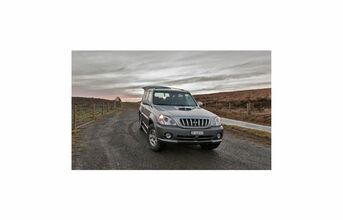
According to studies, Autonomous Emergency Braking (AEB) implementation has reduced pedestrian crash risk is reduced by 25-27 per cent and pedestrian injury crash by 29-30 per cent. The NHTSA in the US has set a deadline for all new vehicles installed to have AEB with more stern requirements by 2029. One of the requirements is that the new vehicles pass automatic braking tests using low beam headlights. IDTechEx projects that some OEMs will turn to SWIR and LWIR technologies to meet NHTSA's requirements, while others will upgrade existing camera and radar hardware, or may install additional hardware such as LiDAR.
The EU's US $7.6 million project, PROSPECT investigated camera, radar and LiDAR technologies for pedestrian detection and AEB. This project was included in the EU's Vision Zero Initiative, which aims to achieve zero road facilities by 2050 and an intermediary goal of halving the 19,800 fatalities in 2021 by 2030.
In comparison to 2022, the number of road fatalities was in the EU was approximately 20,400, which is only a 1 per cent decrease in 2023. The number of fatalities have increased in countries like Belgium, Hungary, and Poland; whereas they have barely decreased in counties like Spain, France, and Italy. IDTechEx expects the technology developments driven by NHTSA's regulation to also be adopted in Europe from 2027, however gradually due to lack of concrete regulations.
IDTechEx estimates that the market penetration of AEB in the Chinese passenger market is approximately 40 per cent as of 2024. China sold 30.1 million passenger vehicles in 2023, compared to 10.5 million in Europe in the same year. Combined with the projected increase in AEB penetration to exceed 60% by 2030, China presents a market opportunity for LWIR thermal cameras over the next 10 years. As is expected in Europe, the technology developed in anticipation of the US market will result in a rise in LWIR-fused AEB in the Chinese market, starting from 2027.
New Car Assessment programmes (NCAP) are evaluations of a passenger vehicles safety using standardised test conditions and the three largest passenger vehicle markets (Europe, the US and China) have their own NCAP's. In the US, these are operated by NHTSA and are mandatory for every new vehicle, including its night-time AEB condition tests, to be carried out in 2029. The Euro NCAP, is voluntary but has its own tests for vehicle and VRU (child/adult pedestrian, cyclist, motorcyclist) encounters. At the start of 2024, China's new C-NCAP regulations replaced the previous version from 2021 and placed greater importance on ADAS features such as AEB and VRU detection.
IDTechEx is aware of two Chinese OEMs introducing LWIR night vision into their vehicles. OEMs such as General Motors, BMW, and Mercedes have optional night-vision systems.
IDTechEx projects that there will be an even larger demand for LWIR cameras for autonomous driving when SAE level 4 vehicles and robotaxis enter regional markets in the long term. IDTechEx expects the initial uptake of automotive LWIR cameras to increase the yearly market size by 6.5 times between 2025 and 2030, driven primarily by NHTSA's regulations, as well as updated regional NCAP testing programs and safety initiatives.


























